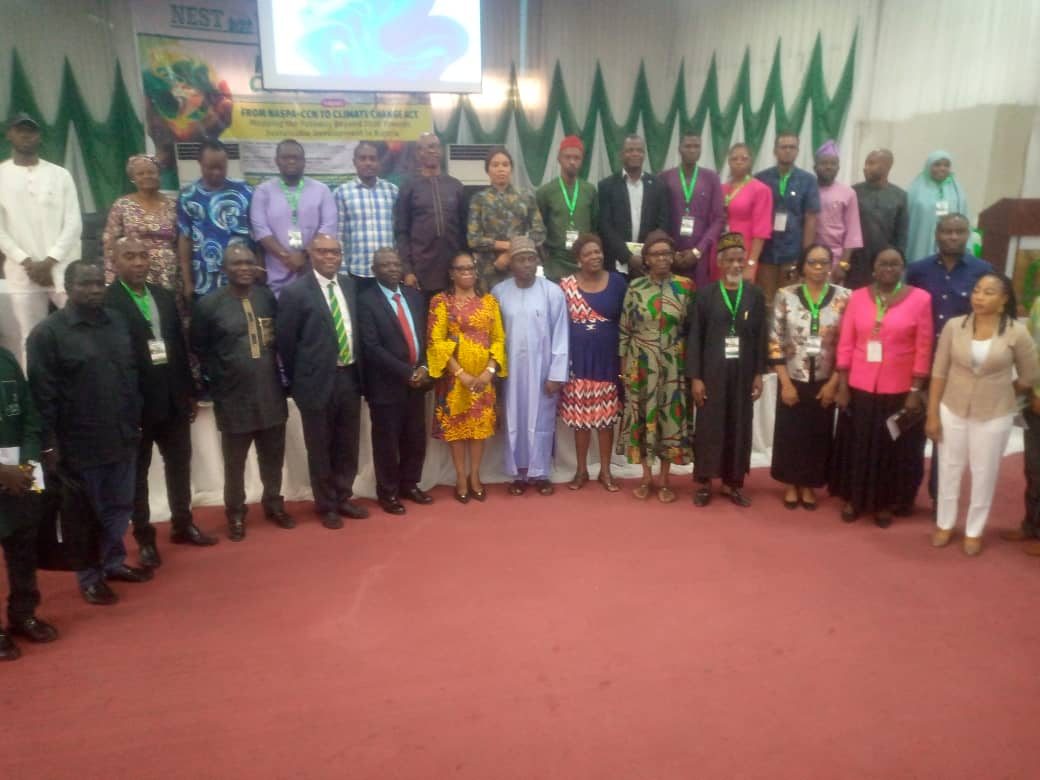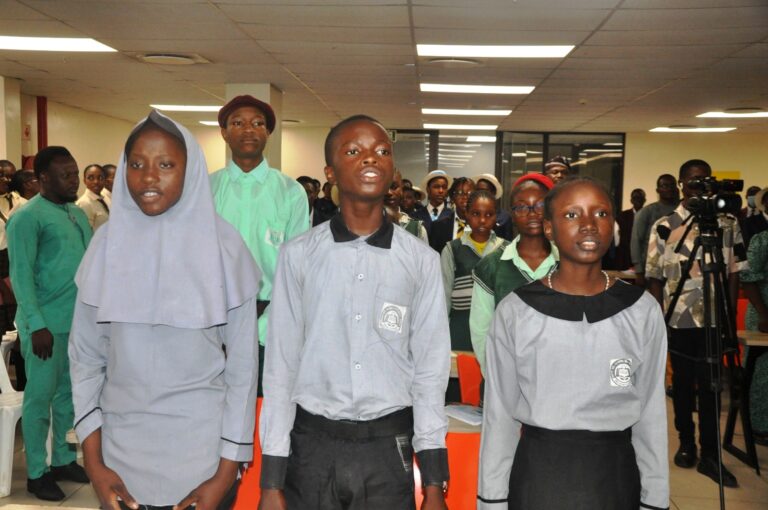Abuja, Nigeria | May 27, 2025 — The Nigerian Environmental Study Action Team (NEST) has called for the full operationalization of Nigeria’s Climate Change Act and the urgent decentralization of climate governance structures to states and local governments. This call emerged from the high-level 2025 NEST Conference held on May 22-23, 2025, at the Idris Abdulkadir Auditorium, National Universities Commission, Abuja.
Themed “From NASPA-CCN to Climate Change Act: Mapping the Pathway Beyond 2030 Towards Sustainable Development in Nigeria,” the conference brought together key players across government ministries, development partners, academia, civil society, youth groups, private sector, and the media.
Policy and Action: Bridging the Climate Implementation Gap
Participants lauded the enactment of Nigeria’s Climate Change Act but expressed deep concern over the slow pace of its implementation. Stakeholders called for the immediate activation of the National Council on Climate Change (NCCC) to drive coordinated climate action across sectors and ensure compliance with national emissions targets.
In his keynote, Dr. Peter Tarfa, former Director of the Department of Climate Change, emphasized that “Nigeria must move from policy formulation to execution—what matters now is delivering real results that protect people, livelihoods, and ecosystems.”
All participants echoed the caution by NEST’s Board Chairman Professor Chinedum Nwajiuba to shift from policy dialogue to practical implementation— “less talk, more action.”
States Must Step Up: Subnational Action is Crucial
New data from NEST revealed that less than half of Nigeria’s 36 states have formal climate change institutions or action plans. The conference spotlighted Oyo State’s climate law and other state-level initiatives as models to replicate.
Speakers stressed the need for:
· State climate legislation aligned with the national Act.
· Climate-smart budgeting and local adaptation frameworks.
· Institutional coordination at all tiers of government.
Youth Innovation, AI, and Nature-Based Solutions Take Center Stage
The technical sessions showcased cutting-edge research and innovations:
· Artificial intelligence (AI) for climate forecasting and disaster risk management.
· Use of Chlorella vulgaris bio-fertilizer and organic farming as low-carbon alternatives.
· Community-based solutions like the NEST-JR Urban Flood Resilience project in Ibadan.
“Young people are not just stakeholders—they are solution providers,” said one youth delegate. “We need investment, mentorship, and a seat at the policy table.”
Climate Finance Remains a Major Bottleneck
A recurring theme was Nigeria’s limited access to climate finance. Speakers from the UNDP, NAP-GCF, and NCCC called for the establishment of a National Climate Finance Strategy to:
· Build capacity for proposal development at federal and state levels.
· Improve fiduciary standards for accessing global climate funds.
· Ensure local communities benefit from climate finance flows.
The Way Forward: Resolutions and Implementation Agenda
The conference adopted a seven-point Implementation Agenda to guide Nigeria’s pathway beyond 2030:
1. Activate the NCCC and support state-level climate governance structures.
2. Develop a National Climate Finance Strategy for inclusive access.
3. Mainstream climate risk into development planning and budgeting.
4. Scale up nature-based and regenerative agriculture solutions.
5. Invest in AI, climate data, and digital tools for forecasting and monitoring.
6. Empower youth and grassroots communities as climate champions.
7. Establish a national Monitoring, Evaluation, and Learning (MEL) framework for transparency and accountability.
NEST Reaffirms Its Commitment
In her welcome remarks during the conference, Dr. Gloria C. Ujor, Executive Director of NEST, reaffirmed the organization’s commitment to championing evidence-based advocacy, capacity development, and multi-stakeholder engagement in driving Nigeria’s climate agenda.
“We are proud to convene this platform and pledge to work with all actors to deliver on the Climate Change Act, empower communities, and secure a sustainable future for Nigeria,” she stated.






